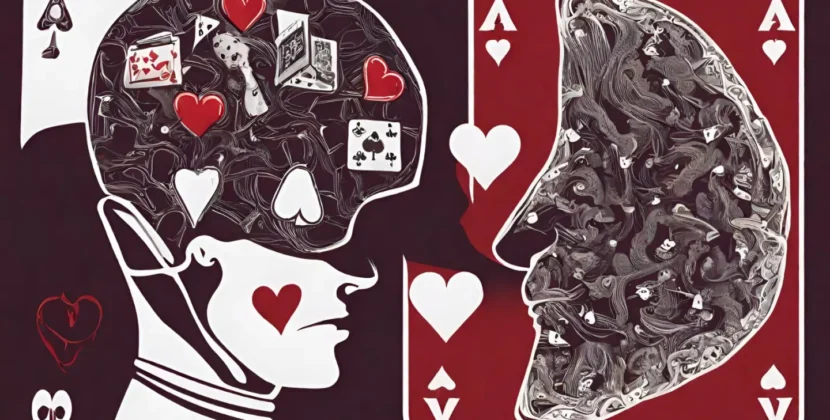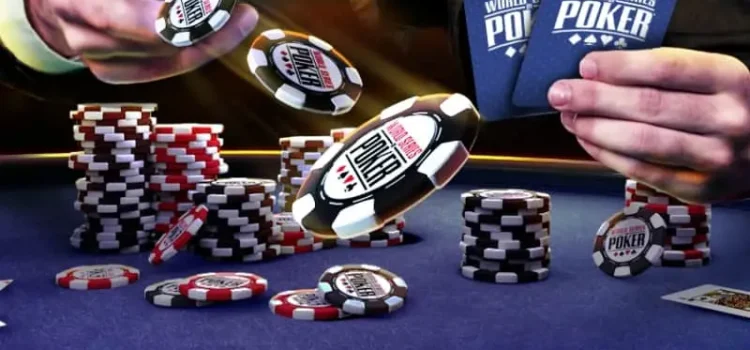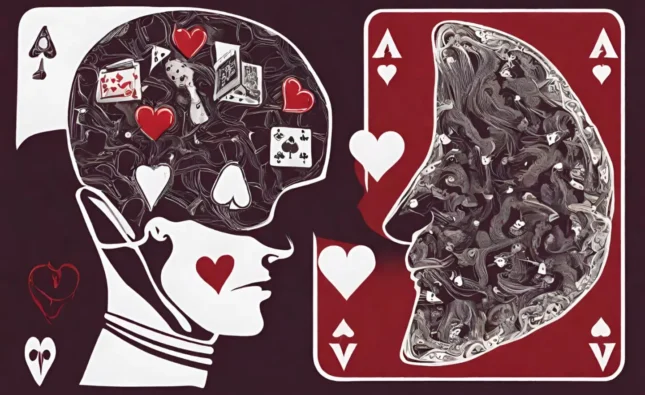
Poker is often portrayed as a game of skill, strategy, and luck. At the table, players are faced with constant decisions that require quick thinking, mathematical calculations, and reading their opponents. With the right knowledge, players can tilt the odds in their favor, outsmart their rivals, and ultimately, win big.
However, there’s an often-overlooked aspect of poker that separates the good players from the great ones: emotional control. Poker, at its core, is as much a mental game as it is a strategic one, and a lack of emotional discipline can destroy even the most skillful player’s chances of success. This phenomenon, known as tilt, can cause players to make poor decisions, overplay their hands, and lose their cool—ultimately losing money and valuable chips.
In this article, we’ll explore what tilt is, how it can affect your game, and most importantly, how you can regain control of your emotions to become a more disciplined and successful poker player.
What is Tilt in Poker?
The term tilt originated from the world of pinball machines, where players would physically shake or “tilt” the machine in frustration after a poor performance, often in an attempt to gain an advantage. While today’s poker games aren’t played on machines, the concept of tilt still remains relevant. In poker, tilt refers to a player’s emotional state after a bad beat or a series of unfortunate outcomes. When someone is on tilt, they become emotionally charged, often feeling frustrated, angry, or helpless, which leads to hasty, reckless decisions.
Tilt can manifest in different ways. A player who is on tilt might start playing more hands than usual, increasing the size of their bets in an attempt to “get back” at the game. They may also become more vocal at the table, complaining about their luck or how bad the other players are. These signs can be obvious to those around them, and unfortunately, they usually signal the beginning of a downward spiral for the player on tilt.
Tilt doesn’t always need to be dramatic. It can be subtle—an annoyance creeping in slowly, making a player feel out of control. Over time, these emotional reactions accumulate, compounding into worse decision-making. The more a player lets their emotions take over, the more likely they are to fall into patterns that are difficult to break, leading to significant losses.
The Importance of Emotional Control in Poker
Poker, unlike many other games, is one where the psychological component plays a massive role in success. A player’s ability to make rational, calculated decisions under pressure is what truly separates the winners from the losers. When a player allows emotions like anger or frustration to dictate their decisions, they are no longer thinking strategically—they’re simply reacting.
The impact of tilt can be profound. A player who is on tilt might overestimate the strength of their hand, leading them to make overly aggressive bets. They might chase losing hands, hoping for a lucky draw, when the smart play is to fold. In extreme cases, tilt can lead players to go all-in recklessly, throwing away their stack of chips because they’re fixated on one bad hand or a perceived injustice in the game.
The reality is that tilt is a direct liability. It erodes the rational decision-making process, causing players to deviate from optimal strategy and ultimately lose more than they win. In poker, your decisions must be based on probability, logic, and the actions of your opponents—not on your emotional state. The game requires a high level of focus, and tilt takes that focus away.
The True Cost of Tilt: Why It’s So Dangerous
Tilt is more than just an emotional nuisance—it’s a dangerous mental leak. It’s a flaw in a player’s psychological makeup that can result in significant losses over time. Unlike mistakes that can be tracked through hand history or poker software, tilt is harder to identify. It doesn’t show up as a stat in your tracking software, nor can you easily pinpoint it in your hand history. But rest assured, it will show up in your overall win rate.
Many players fail to recognize tilt as a critical issue, brushing it off as just part of the game. But over time, players who don’t address their emotional control often find themselves making worse decisions and losing bigger pots than they should. They don’t see tilt as a leak in their game, but it is one that can cost them hundreds or even thousands of dollars.
Another dangerous aspect of tilt is that it can be exploited by more emotionally stable players. Skilled poker players know how to read their opponents, and an opponent on tilt is a perfect target. Players who are emotionally under control can use their opponent’s frustration to manipulate them into making bad decisions. Whether it’s through subtle table talk or betting patterns designed to provoke an emotional response, skilled players can use tilt against their opponents.
Think of poker players like Tony G or William Kassouf, who are known for their psychological warfare at the table. They understand the power of tilt and use it to their advantage, baiting players into emotional reactions that lead to poor decision-making.
Recognizing Tilt: How to Spot It in Yourself and Others
Recognizing tilt in yourself is the first step toward controlling it. But it’s also important to be aware of when your opponents are on tilt so that you can capitalize on their emotional state.
Signs of tilt in yourself:
- Frustration or anger: A significant bad beat or losing streak can trigger emotional responses. If you find yourself getting angry, frustrated, or starting to blame the deck, you’re probably on tilt.
- Playing more hands than usual: When on tilt, many players try to “get back” at the game by playing more hands than they should. This is often a sign of emotional distress.
- Increased aggression: Players on tilt tend to make larger, more aggressive bets. They want to win back what they’ve lost, and this leads to reckless behavior.
- Complaining about bad beats: While it’s natural to feel bad about a loss, constantly talking about bad beats or blaming the other players can be a sign of tilt.
Signs of tilt in others:
- Over-aggression: A player who suddenly becomes more aggressive than usual may be on tilt. Watch for large, erratic bets or calls that don’t align with the board texture.
- Complaints or trash talk: If an opponent starts blaming bad beats, bad luck, or the actions of others, they might be on tilt.
- Making emotional decisions: Tilt often leads to poor judgment. Watch for players who are chasing hands, calling bets that don’t make sense, or making large raises without the proper hand strength.
How to Avoid Tilt: Tips for Managing Your Emotions
While tilt is an inevitable part of poker for many players, the good news is that you can develop strategies to manage your emotions and avoid falling victim to it. Below are some tips for staying disciplined and emotionally stable at the poker table:
- Develop Good Habits Outside the Game: Poker requires mental clarity and focus, and achieving that starts with your lifestyle outside the game. Prioritize sleep, eat healthily, and exercise regularly. Take care of your body so that your mind can perform at its best when you sit at the table.
- Take Regular Breaks: Playing poker for long stretches can lead to mental fatigue, which increases the chances of tilt. Take regular breaks to reset your mind and emotions. Stepping away from the table for even a few minutes can help you regain composure and refocus.
- Set Realistic Goals: One of the biggest triggers for tilt is an unrealistic expectation of constant success. Remember that poker is a long-term game, and variance is a significant factor. Setting short-term goals for improvement rather than focusing on winning every hand can help you manage your emotional state.
- Focus on the Process, Not the Results: In poker, the outcome of each individual hand is largely out of your control. Focus on making the best decision possible based on the information available, and don’t let the results dictate your emotions. Trust that over time, your skill and discipline will lead to positive results.
- Practice Mindfulness: Mindfulness techniques such as deep breathing or meditation can help you stay calm and focused during emotional moments. By practicing mindfulness, you can train yourself to stay centered, even in the face of frustration or anger.
- Know When to Walk Away: If you feel yourself starting to tilt, take a step back and walk away from the table. Sometimes the best decision you can make is to take a break, reset, and come back when you’re in a better emotional state.
- Embrace the Variance: Poker is inherently a game of ups and downs. No matter how skilled you are, you will encounter bad beats and losses. Accepting that variance is part of the game will make it easier to stay calm when things don’t go your way.
- Seek Support: Talking with other poker players or a coach about your emotional struggles can help you gain perspective. Sometimes, just voicing your frustration can help you let go of the negative emotions and refocus on your game.
Conclusion: The Power of Emotional Discipline in Poker
Tilt is a serious issue in poker, but it doesn’t have to define your game. By developing emotional control and focusing on the mental aspects of poker, you can improve your decision-making, reduce emotional stress, and ultimately become a more successful player. Poker is not only about understanding the game’s mechanics; it’s about maintaining your mental clarity and making the best decisions under pressure.
Remember, the true cost of tilt is more than just lost chips—it’s the lost opportunity to grow as a player. When you master the art of emotional discipline, you’ll find that your poker game will improve in ways you never imagined.












